
- Home |
- About us... |
- Call for papers |
- Editorial Board |
- Contact |
- Español |
- Français

ISSN 2250-5660 print | ISSN 2250-5415 online
last update avril 2024
Call for papers
Call for papers
Ethics and Films Journal receives original manuscripts permanently and once they are approved by Peer review process its publication will be estimated according to the thematic arrangement of the numbers.
Publication conditions
Ethics and Films Journal is a quarterly Peer Reviewed electronic publication issued in March, July and November of each year.
It is addressed to the international academic community, as well as to a wider public interested in Film Studies, the articulation between ethics, bioethics and cinema, and psychoanalysis and cinema.
The Journal will consider for publication original papers or scientific essays, sent in Spanish and English (preferably in both languages), related to Applied Ethics, Bioethics, Biopolitics, Ecobioethics and other related subjects, always in relation to cinema. Reprints and reviews of books on the subject are also welcome.
We expect original investigative essays on films and the theoretical framework in which they are analysed. These should be written in a pleasant essayistic style.
Submission of papers
All material (Spanish and English) to be considered for publication should be sent to: jjmf@psi.uba.ar and eticaycine@psi.uba.ar.
Manuscripts must be accompanied by a cover letter addressed to the editors of the Journal stating the following: title of manuscript, name of each author, authors’ affiliation, complete mailing address, telephone and fax numbers and e-mail address. It should be clearly stated that the work has not been published previously and that the same article or part of it has not been sent to another publication. It must include the following information: Title of the work (in Spanish, English and Portuguese). Full name and last name(s) of the authors. ORCID identifier of each of them. Full name of the institution belonging to each of the authors. Corresponding author, postal address, telephone, fax and email address.
If the results reported in the manuscript have been presented previously at a scientific event, this must be stated, giving its name, location and date. The full names of any individuals acknowledged (acknowledgements) must be given. Funding sources must be cited.
The excluding criteria for the acceptance of documents are:
- The topic does not correspond to the thematic field of the journal.
- Does not use the American PsychologicalAssociation (APA), 7th Edition reference type and citation.
- It does not send the writing in the required support (Microsoft Word format).
Ethical principles
Ethics and Films Journal adheres to national and international codes of ethics stated in documents such as CONICET: Guidelines for ethical behavior in the Social Sciences and Humanities (Resolution No. 2857, December 11, 2006) and Guidelines on Good Publication Practice (Committee on Publications Ethics: COPE). Emphasis is placed on the following issues:
- The Editorial Board is committed to providing clear information about the entire editorial process: the evaluation of relevance, the results of the peer review and the criteria used in it. Along with this, at all times the instances in which the works are received for consideration to be published in Ethics and Films Journal should be disclosed.
- Privacy Statement: At no time will the Editorial Board disclose the identity of potential authors, reviewers or evaluators as well as any data that arises from an article sent to Ethics and Films Journal, prior to its publication. Likewise, it will not disseminate any information regarding the content of the articles that have not been selected for publication.
- The Editorial Board has the power to decide on what is published in Ethics and Films Journal, evaluating the originality and importance for the university extension in general. Likewise, and if necessary, the Editorial Board may make corrections, clarifications and apologies.
It is expressly established that the opinions of the authors are their exclusive responsibility. - Obligations: The author or authors are responsible for ensuring that the submission has not been previously published or sent simultaneously to another journal (or an explanation has been provided in Comments to the editor).
The author or authors must verify that the text complies with the bibliographic and style requirements indicated in this section. The author or authors must corroborate that the work submitted for evaluation complies with the ethical standards established for the Social and Human Sciences. The reviewers must communicate about possible plagiarism detected in the works they evaluate. Likewise, they must maintain confidentiality about the articles reviewed. In case of rejecting a piece of work this must be substantiated by the reviewers. Reviewers should excuse themselves in case of conflicts of interest.
Conflicts of interest
There is a conflict of interest when an author (or the institution to which the author belongs), evaluator or editor has a personal or financial relationship that have an inadequate influence on their actions and may affect scientific judgment.
All authors must declare that they do not have conflicts of interest with the publication, with the editors, other authors or evaluators. If in the peer review of an article a potential conflict of interest is identified, the expert reviewer must express it in writing in his opinion and communicate it to the Editors, refraining from reviewing that writing where there is a possibility of bias.
In no case should the expert reviewer use prior knowledge about a work before publication in favor of his own interests.
Journal’s criteria for authorship
Authorship is based on the following 4 criteria:
- Substantial contributions to the conception or design of the work; or the acquisition, analysis, or interpretation of data for the work; AND
- Drafting the work or revising it critically for important intellectual content; AND
- Final approval of the version to be published; AND
- Agreement to be accountable for all aspects of the work in ensuring that questions related to the accuracy or integrity of any part of the work are appropriately investigated and resolved.
Contributors who meet fewer than all 4 of the above criteria for authorship should not be listed as authors, but they should be acknowledged.
Policies regarding plagiarism
The plagiarism assumptions are: presenting the work of others as their own; adopt words or ideas of other authors without due recognition; do not use quotation marks in a literal quote; give incorrect information about the true source of an appointment; the paraphrasing of a source without mentioning the source; the abusive paraphrasing, even if the source is mentioned.
The general assumptions of scientific fraud are the following: a) fabrication, falsification or omission of data and plagiarism; b) duplicate publication; and c) authorship conflicts. The dishonest practices related to plagiarism and the various cases of scientific fraud that are detected will be debated by the members of the Editorial Board, who will decide the measures to adopt. The author(s) will assume the consequences of any nature that derive from the breach of the obligations indicated in these editorial rules.
All articles will be subject to plagiarism detection through the Plag.es system. When this is detected totally or partially, the Editorial Board will follow these procedures:
- The evidence of the detected plagiarism will be sent to the author, requesting an explanation of it.
- If the answer is not satisfactory for the Editorial Board, the article will not be subjected to external evaluation and the journal will not receive more articles from the authors. In turn, if applicable, the media in which the original plagiarized article was published will be informed.
- No more papers by the authors will be accepted in Ethics and Films Journal.
About copyright
Authors who publish in Ethics and Films Journal accept the following conditions:
The authors retain the copyright © and allow publication to Ethics and Films Journal, under license CC BY-SA / Recognition - Recognition-ShareAlike 4.0 International. The adoption of this license allows copying, redistributing, publicly communicating the work, recognizing its credits, and building on the published material, and must grant the appropriate credit through a link to the license and indicating if changes were made.

Este obra está bajo una licencia de Creative Commons Reconocimiento-CompartirIgual 4.0 Internacional.
Manuscript characteristics
Originals Papers:
The work will be headed by the title in bold (eg Stanley Milgram’s experiment through cinema, ethical and methodological issues). Title must also be submitted in English and Portuguese.
The minimum length required is 5 pages and the maximum recommended is 20 pages (A4), with Arial font, size 12 points and single line spacing. At the end of the text, bibliographic references, tables and images that are essential will be included. The title of the films, literary works and other sources cited will be written in italics.
All articles must include an Abstract/summary (in Spanish, English and Portuguese). The maximum length will be 250 words and will not include abbreviations or bibliographic references. At the end of the summary a minimum of 3 and up to a maximum of 6 keywords will be added, following UNESCO Thesaurus (in Spanish, English and Portuguese).
The bibliographical references will be presented at the end of the article in alphabetical order and consigned according to the American Psychological Association (APA), 7th Edition reference type and citation. Bibliographic references and filmographic references should be separated. The final notes will appear with correlative numbering operated automatically by the word processor.
Peer review process
Correspondence with the authors is done by email.
In the first place, the articles are evaluated by the Editorial Board according to the pertinence of the subject. The Board can directly reject the works received without resorting to an external consultation process if it considers them inappropriate for the journal due to lack of the required level of quality, for not responding to the theme of the call; for lack of adaptation to the guidelines established by the magazine or for presenting evidence of fraud.
Once this instance is drawn, the articles are submitted to the consideration of the Peer Review Committee, which is specially designed for the subject and evaluated under the "double blind" system, this implies that the evaluators will not know the name of the author and vice versa. The evaluators will not be affiliated to the same institution of origin of the article.
The evaluators review the quality of the works according to their conceptual rigour, academic relevance, originality and clarity of exposure.
The final result of the opinion may be:
- Approved, without any objection. In this case, it will be submitted to style correction for its final disposition in the magazine.
- Approved, subject to modification regarding writing or bibliography, requests for clarification or observations that the evaluators consider relevant. In this case, authors will be given a specific time to correct them. After the deadline, if the authors did not make the necessary corrections or discharges, the article will not be published in that edition. If the authors make the necessary changes, the article returns to correction. Once the final version is approved, it proceeds to style correction and is published. If the reviewers consider that the changes were not made, the article will not be published. This definition is not subject to appeal.
- Not approved when it does not reach minimum standards (in terms of theoretical rigour or severe deficits in writing). In this case, the article will not be published in that number. The failure of the evaluators is not subject to appeal.
In case of different opinions among the evaluators, the Editorial Board will review them and make a decision in this regard. The decision will not be subject to appeal.
The reviewers will attend both the formal presentation of the paper (clarity and precision in the writing of the article, structuring the work and adequacy of the bibliographic references) and the quality of the content (expository coherence, analysis and adequate justification, rigour and conceptual precision; logic of presentation of contents, contributions for the university extension and relevance and current bibliography). Those articles that are selected will be arranged in the digital version, according to the Editorial Board.
Ethics and Films Journal is not responsible for unpublished works.
Test review
The indicated author will receive the draft version by email when the article is in press, which must return corrected within 72 hours. These trials aim to detect typographical, orthographic or form errors. Corrections that affect the content or that modify the article in its original sense will not be accepted.
When the work is published, the journal allows self-archiving of published articles, in institutional, thematic repositories or personal web pages, in a corrected post-print version.
If you want to send us a comment or complaint about our evaluation process, you can do it personally through our contact e-mails, or anonymously through our postal mail.
Digital Preservation Policy
The information present in the "Periodic Publications System" (SPP) is preserved in different digital media daily and weekly. The supports used for the "backup copy" are rigid disks and magnetic tapes.
Backup copy on hard disks: Two disks configured with a RAID 1 schema are used. Another copy is made on a remote backup copy server that is in a different physical location from where the main SPP server is located. This copy is made every 12 hours, without compression and / or encryption.
Also, Ethics and Films Journal is kept in the repository of the Universidad Nacional de Córdoba: https://revistas.unc.edu.ar/index.php/eticaycine
issues
-
Volumen 14 | Nº 1
Volumen 14 - Nº 1
MARCH 2024
March 2024 - June 2024 -
Volumen 13 | Nº 2
Volumen 13 - Nº 2
JULY 2022
July 2022 - Octuber 2022 -
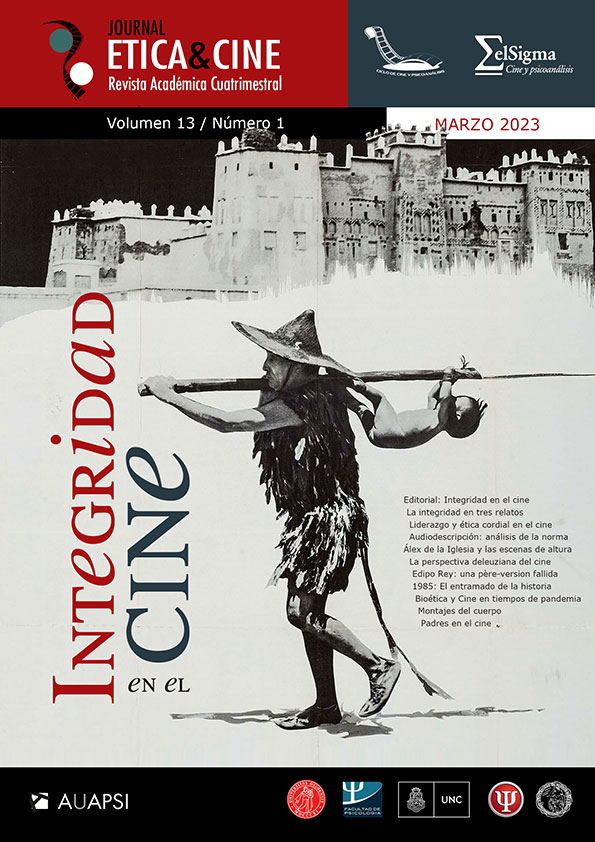
-
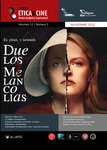 Volumen 12 | N° 3
Volumen 12 | N° 3NOVEMBER 2022
November 2022 - February 2023 -
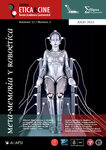 Volumen 12 | N° 2
Volumen 12 | N° 2JULY 2022
JULY 2022 - OCTUBER 2022 -
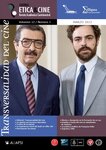 Volumen 12 | N° 1
Volumen 12 | N° 1MARCH 2022
March 2022 - June 2022 -
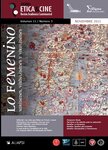 Volumen 11 | N° 3
Volumen 11 | N° 3NOVEMBER 2021
November 2021 - February 2021 -
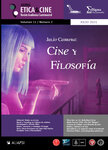 Volumen 11 | N° 2
Volumen 11 | N° 2Ética y Filosofía
-
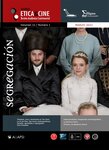 Volumen 11 | N° 1
Volumen 11 | N° 1MARCH 2021 - JUNE 2021
-
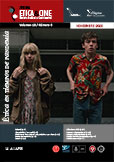 Volumen 10 | Nº 3
Volumen 10 | Nº 3NOVEMBER 2020 - FEBRUARY 2021
MORE ISSUES
Etica y Cine (Ethics & Films) is a Peer Reviewed Quarterly Journal Edited by
Department of Psychoanalysis and Department of Deontology, School of Psychology, National University of Cordoba, Argentina
Department of Psychology, Ethics and Human Rights, School of Psychology, University of Buenos Aires, Argentina
With the collaboration of:
Center for Medical Ethics (CME), Faculty of Medicine, University of Oslo, Norway
Under the auspicious of:
The International Network of the UNESCO Chair in Bioethics.
